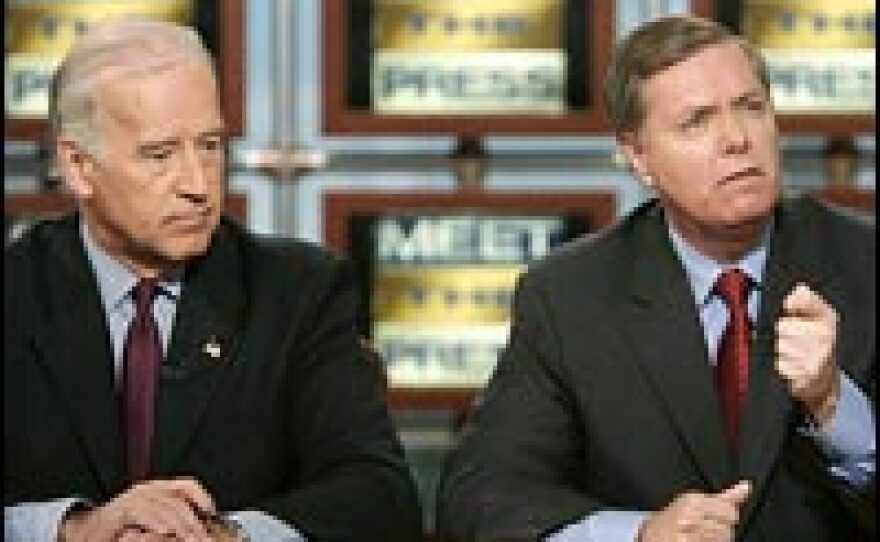
President Bush is set to announce changes in his Iraq strategy Wednesday night, including an expected increase in U.S. troop levels. Advance word of that plan has already prompted Democrats newly in control of Congress to warn that they will not automatically approve the funding.
In remarks scheduled for 9 p.m. ET Wednesday, Mr. Bush is set to announce a plan that could mark a turning point in Iraq.
"One thing is for certain, I will want to make sure that the mission is clear and specific and can be accomplished," the president said last week. He said he would outline a strategy that will help Iraq "govern, sustain and defend itself."
Up until now, the military mission in Iraq has been to help the Iraqis take the lead in running the country -- the term the White House uses is "transition." According to people familiar with recent discussions at the White House the new mission of U.S. military forces in Iraq will largely be to secure the population -- basically, to stop the bloodshed.
To do that, the president will order an increase in the U.S. ground forces in Iraq by at least four brigades, or 15,000 troops.
Now that the Democrats are in charge of Congress, Mr. Bush is going to face something he hasn't faced in his six years in office -- real opposition.
"If the president wants to add to this mission, he is going to have to justify it," House Speaker Nancy Pelosi said on CBS Sunday Morning.
To justify it, the president will have to rely on his allies in Congress, including Republican Sen. Lindsey Graham of South Carolina. Graham argues that an increase in U.S. forces will create conditions that could give the Iraqi government some breathing room to govern.
"A surge of troops is the result of the current strategy not working and it by itself will not lead to a successful outcome, but a precondition to political stability and economic recovery is security," Graham said.
The word "surge" is actually misleading. Don't expect thousands of fresh troops to be flown into Iraq. Basically, brigades that are in Iraq now will be extended; the ones scheduled to depart for Iraq will go earlier.
So, as Democrat Sen. Joe Biden of Delaware pointed out on NBC Sunday, when the president orders more troops, it will have ripple effects on every brigade currently in Iraq.
"Every two months, he's going to have to reconsider this -- every two months," Biden said. "It's not just surging once and that's it. He's not surging for a year. Every two months, he's going to have to decide: Do I continue to extend the tours of duty of those who are there, do I bring more in?"
Right now, there are about 135,000 U.S. ground troops in Iraq. The idea behind the president's expected change is to stabilize the number of forces at around 150,000 for a period of 12 to 18 months.
The proposed increase is something that makes a lot of current and former military officers uncomfortable, including retired Col. Paul Hughes who was once an adviser to and then a critic of the U.S. civilian authority in Iraq.
"The question I always ask is, what does victory look like?" Hughes says. "To simply say that it's an Iraqi government that can govern itself, sustain itself and defend itself, that leaves a lot of details to be discussed."
Copyright 2022 NPR. To see more, visit https://www.npr.org. 9(MDAzMjM2NDYzMDEyMzc1Njk5NjAxNzY3OQ001))







